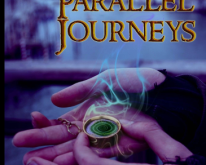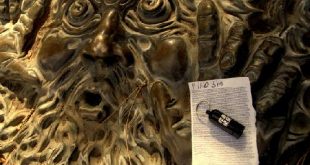THE WARRIOR SAYINGS OF DON JUAN
The following quote collection has been culled from the Casteneda books and represents a distillation of Don Juan’s philosophy of the warrior. Regardless of what you may think of the literal veracity of these books(they have been pretty successfully debunked as truthful encounters), they were for many in our culture, including me, the first encounter with the philosophy of the warrior. Don Juan’s teachings about the Warrior stance have the perfection of a Samurai sword or arrows shot by a master Zen archer. Their concise, penetrating power is unequaled, and they pierce ego illusions like diamond bullets. Taken together they amount to a Toltec Warrior Manifesto. Someone once defined stories as “equipment for living.” Don Juan’s warrior teachings are also equipment for living, something never to leave behind, like a blade of impervious metal, a powerful ally to accompany you into any sort of wilderness.
I am already given to the power that rules my fate. And I cling to nothing, so I will have nothing to defend. I have no thoughts, so I will see. I fear nothing, so I will remember myself.
Detached and at ease, I will dart past the Eagle to be free.
Warriors have an ulterior purpose for their acts which has nothing to do with personal gain. The average man acts only if there is a chance for profit. Warriors act not for profit, but for the spirit.
For the average man, the world is weird because if he’s not bored with it, he’s at odds with it. For a warrior, the world is weird because it is stupendous, awesome, mysterious, unfathomable. A warrior must assume responsibility for being here, in this marvelous world, in this marvelous time.
Impeccability begins with a single act that has to be deliberate, precise and sustained. If that act is repeated long enough, one acquires a sense of unbending intent which can be applied to anything else. If that is accomplished the road is clear. One thing will lead to another until the warrior realizes his full potential.
Any movement of the assemblage point means a movement away from an excessive concern with the individual self. Shamans believe it is the position of the assemblage point which makes modern man a homicidal egoist, a being totally involved with his self-image. Having lost hope of ever returning to the source of everything, the average man seeks solace in his selfishness.
A warrior must cultivate the feeling that he has everything needed for the extravagant journey that is his life. What counts for a warrior is being alive. Life in itself is sufficient, self-explanatory and complete. Therefore, one may say without being presumptuous that the experience of experiences is being alive.
A warrior must focus his attention on the link between himself and his death. Without remorse or sadness or worrying, he must focus his attention on the fact that he does not have time and let his acts flow accordingly. He must let each of his acts be his last battle on earth. Only under those conditions will his acts have their rightful power. Otherwise they will be, for as long as he lives, the acts of a fool.
Note—Although the quotes use the default masculine pronoun “he,” it is not assumed that warriors must be males. Many of the most powerful warriors in the Casteneda books are female.
Warriors compress time; this is the sixth principle of the art of stalking. Even an instant counts. In a battle for your life, a second is an eternity, an eternity that may decide the outcome. Warriors aim at succeeding, therefore they compress time. Warriors don’t waste an instant.
A warrior acknowledges his pain but he doesn’t indulge in it. The mood of the warrior who enters into the unknown is not one of sadness; on the contrary, he’s joyful because he feels humbled by his great fortune, confident that his spirit is impeccable, and above all, fully aware of his efficiency. A warrior’s joyfulness comes from having accepted his fate, and from having truthfully assessed what lies ahead of him.
The basic difference between an ordinary man and a warrior is that a warrior takes everything as a challenge, while an ordinary man takes everything as a blessing or as a curse.
The self-confidence of the warrior is not the self-confidence of the average man. The average man seeks certainty in the eyes of the onlooker and calls that self-confidence. The warrior seeks impeccability in his own eyes and calls that humbleness. The average man is hooked to his fellow men, while the warrior is hooked only to infinity.
It is much easier for warriors to fare well under conditions of maximum stress than to be impeccable under normal circumstances.
What seems natural is to think that a warrior who can hold his own in the face of the unknown can certainly face petty tyrants with impunity. But that’s not necessarily so. What destroyed the superb warriors of ancient times was to rely on that assumption. Nothing can temper the spirit of a warrior as much as the challenge of dealing with impossible people in positions of power. Only under those conditions can warriors acquire the sobriety and serenity to withstand the pressure of the unknowable.
Knowledge comes to a warrior, floating, like specks of gold dust, the same dust that covers the wings of moths. So for a warrior, knowledge is like taking a shower, or being rained on b specks of dark gold dust.
A warrior is a hunter. He calculates everything. That’s control. Once his calculations are over, he acts. He lets go. That’s abandon. A warrior is not a leaf at the mercy of the wind. No one can push him, no one can make him do things against himself or against his better judgment. A warrior is tuned to survive and he survives in the best of all possible fashions.
Acts have power. Especially when the warrior acting knows that those acts are his last battle. There is a strange consuming happiness in acting with the full knowledge that whatever he is doing may very well be his last act on earth.
If a warrior is to succeed in anything, the success must come gently, with a great deal of effort but with no stress or obsession.
Our fellow men are black magicians. And whoever is with them is a black magician on the spot. Think for a moment, can you deviate from the path that your fellow men have lined up for you? And if you remain with them, your thoughts and your actions are fixed forever in their terms. That is slavery. The warrior, on the other hand, is free from all that. Freedom is expensive, but the price is not impossible to pay. So, fear your captors, your masters. Don’t waste your time and your power fearing freedom.
A warrior is never under siege. To be under siege implies that one has personal possessions that could be blockaded. A warrior has nothing in the world except his impeccability, and impeccability cannot be threatened.
To discard everything that is unnecessary is the second principle of the art of stalking. A warrior doesn’t complicate things. He aims at being simple. He applies all the concentration he has to decide whether or not to enter into battle, for any battle is a battle for his life. This is the third principle of the art of stalking. A warrior must be willing and ready to make his last stand here and now. But not in a helter-skelter way.
The flaw with words is that they always make us feel enlightened, but when we turn around to face the world they always fail us and we end up facing the world as we always have, without enlightenment. For this reason, a warrior seeks to act rather than to talk, and to this effect, he gets a new description of the world—a new description where talking is not that important, and where new acts have new reflections.
Applying these principles brings about three results. The first is that stalkers learn never to take themselves seriously; they learn to laugh at themselves. If they are not afraid of being a fool, they can fool anyone. The second is that stalkers learn to have endless patience. Stalkers are never in a hurry; they never fret. And the third is that stalkers learn to have an endless capacity to improvise.
Only as a warrior can one withstand the path of knowledge. A warrior cannot complain or regret anything. His life is an endless challenge, and challenges cannot possibly be good or bad. Challenges are simple challenges.
The recommendation for warriors is not to have any material things on which to focus their power, but to focus it on the spirit, on the true flight into the unknown, not on trivialities. Everyone who wants to follow the warrior’s path has to rid himself of the compulsion to possess and hold onto things.
Self-importance is man’s greatest enemy. What weakens him is feeling offended by the deeds and misdeeds of his fellow men. Self-importance requires that one spend most of one’s life offended by something or someone.
The hardest thing in the world is to assume the mood of a warrior. It is of no use to be sad and complain and feel justified in doing so, believing that someone is always doing something to us. Nobody is doing anything to anybody, much less to a warrior.
A warrior takes his lot, whatever it amy be, and accepts it in ultimate grounds for regret but as a living challenge.
By the way, Casteneda, just before he died, published an entire book of Don Juan quotations entitled The Arrow of Time.
When nothing is for sure we remain alert, perennially on our toes. It is more exciting not to know which bush the rabbit is hiding behind than to behave as though we knew everything.
As long as a man feels that he is the most important thing in the world, he cannot really appreciate the world around him. He is like a horse with blinders; all he sees is himself, apart from everything else.
There is no completeness without sadness and longing, for without them there is no sobriety, no kindness. Wisdom without kindness and knowledge without sobriety are useless.
Everything that warriors do is done as a consequence of a movement of their assemblage points, and such movements are ruled by the amount of energy warriors have at their command.
Power always makes a cubic centimeter of chance available to a warrior. The warrior’s art is to be perennially fluid in order to pluck it.
The worst that could happen to us is that we have to die, and since that is already our unalterable fate, we are free; those who have lost everything no longer have anything to fear.
What we need to do to allow magic to get hold of us is to banish doubts from our minds. Once doubts are banished anything is possible.
A warrior must learn to make every act count, since he is going to be here in this world for only a short while, in fact, too short for witnessing all the marvels of it.
Feeling important makes one heavy, clumsy and vain. To be a warrior one needs to be light and fluid.
Dwelling upon the self too much produces a terrible fatigue. A man in that position is deaf and blind to everything else. The fatigue itself makes him cease to see the marvels all around him.
When one has nothing to lose, one becomes courageous. We are timid only when there is something we can still cling to.
For a seer, the truth is that all living beings are struggling to die. What stops death is awareness.
The only freedom warriors have is to behave impeccably. Not only is impeccability freedom; it is the only way to straighten out the human form.
I hope these quotes nourish you as they have me. Save them, print them out, keep them with you for they will never seem dated or irrelevant if you aim at impeccability and the warrior’s stance. — Jonathan
 ZapOracle.com home to the free 720-card Zap Oracle
ZapOracle.com home to the free 720-card Zap Oracle







Is the book actually “The Wheel of Time”? Either way “The Arrow of Time” seems more correct. I once had a dream where Ares showed me the nature of time. In the dream he drew an arrow he called “the arrow of time”. He notched it and pulled it back until it seemed the bow would break but instead just as the ends of the bow touched it became a torus and into the torus flew “the arrow of time”. It became one with it or was absorbed in it. It was if all these events became one event on some level. I have never forgotten this dream although I can’t claim to understand exactly what it means. It seemed to speak of intentionality, and action as these quotes describe as well as the nature of time itself.